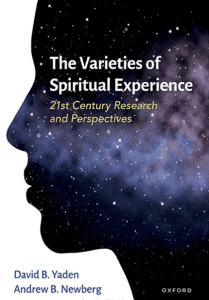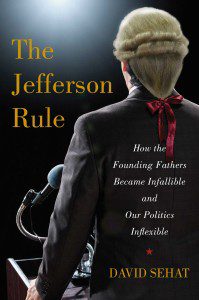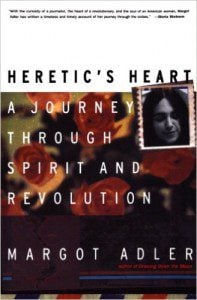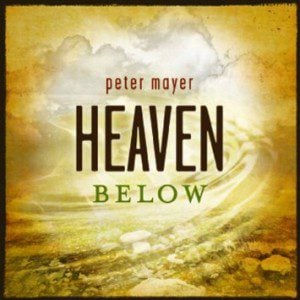One of the most interesting parts of my transition from being a pastor in a Progressive Christian church to being the minister of a Unitarian Universalist congregation is the shift from the Christian tradition being the central point of reference to Christianity being one among many sources of authority.
Unitarian Universalism explicitly draws from Six Sources:
- Direct experience of that transcending mystery and wonder, affirmed in all cultures, which moves us to a renewal of the spirit and an openness to the forces which create and uphold life;
- Words and deeds of prophetic women and men which challenge us to confront powers and structures of evil with justice, compassion, and the transforming power of love;
- Wisdom from the world’s religions which inspires us in our ethical and spiritual life;
- Jewish and Christian teachings which call us to respond to God’s love by loving our neighbors as ourselves;
- Humanist teachings which counsel us to heed the guidance of reason and the results of science, and warn us against idolatries of the mind and spirit;
- Spiritual teachings of earth-centered traditions which celebrate the sacred circle of life and instruct us to live in harmony with the rhythms of nature. [the bold emphasis is mine]
As the Fourth Source shows, Jewish and Christian teachings remain important, but they are not first or uniquely privileged.
Since today is my first Ash Wednesday as a Unitarian Universalist, this occasion seems like an appropriate time to reflect on why I am not practicing a Lenten Discipline this year. I’m not per se “giving up Lent for Lent”; rather, I’m experimenting with what it feels like not to practice Lent.
For many years, especially as I transitioned from my childhood Southern Baptist faith to Progressive Christianity, I found deep meaning in the rhythms of the Christian Seasons Calendar — from the Advent-Christmas-Epiphany cycle to the Lent-Easter-Pentecost cycle and all the Ordinary Time in between. But part of what I find life-giving about Unitarian Unitarianism is the challenge to draw from all Six Sources in constructing a year’s worth of meaningful worship experiences.
There is deep value in going deeply into one tradition. But I also question whether it is the best choice in our pluralistic, postmodern world to always repeat the same liturgical seasons annually and to reinterpret the same lectionary readings every three years. In contrast, I cherish the freedom the preach on whatever topic seems most relevant — using whatever source seems most salient — in order to challenge and equip my congregation to live out our UU Principles:
- The inherent worth and dignity of every person;
- Justice, equity and compassion in human relations;
- Acceptance of one another and encouragement to spiritual growth in our congregations;
- A free and responsible search for truth and meaning;
- The right of conscience and the use of the democratic process within our congregations and in society at large;
- The goal of world community with peace, liberty, and justice for all;
- Respect for the interdependent web of all existence of which we are a part.
The most compelling reason for this approach that I have found so far is that it helps prevent one of the prophetic challenges I heard most frequently to lectionary preachers — questions such as “Have you ever heard or preached a sermon on Climate Change?” I do understand the advantages of committing to a tradition and prophetically critiquing the world from inside that tradition, but historic traditions can insulate a community from addressing the most pressing problems of today.
I also suspect that I will choose to practice Lent again, perhaps sooner rather than later. And I should add that some Christians would be surprised at the enthusiasm in many Unitarian Universalist circles for Christian practices, including Christmas Eve candlelight services and even practicing Communion given the right setting, circumstance, and theological approach.
For all those who undergo an imposition of ashes on this day, may you have a holy and blessed Lent.
Perhaps there are others out there who may find it meaningful to experiment with giving up Lent, even temporarily — or perhaps even paradoxically to give up Lent…for Lent.
Related Posts
The Rev. Dr. Carl Gregg is a trained spiritual director, a D.Min. graduate of San Francisco Theological Seminary, and the minister of the Unitarian Universalist Congregation of Frederick, Maryland. Follow him on Facebook (facebook.com/carlgregg) and Twitter (@carlgregg).
Learn more about Unitarian Universalism:
http://www.uua.org/beliefs/principles/index.shtml












